We Help You Hire a Multiplatform App Developer From South America
It can be stressful and time-consuming to find the right nearshore company to hire a Multiplatform App Developer from. A good Multiplatform App developer must be smart, experienced, hardworking, and have proven skills.
By using our AI matching algorithm, we can help your organization find the right developer for your project. The combination of data and personal interviews ensures you will have a perfect match for your team.
Our goal is to help you hire Multiplatform App developers that will contribute quality app code from day one. Due to this, we’ve refined our hiring process over the last several years, and many fast-growing startups rely on it. Our Multiplatform App Software Developers will add expertise and commitment to your team.
US Hours
As our multi platform app engineers are located in South America, they are available to work US hours to communicate and integrate with your existing team.
South American Pricing
Our team consists of talented and experienced Multiplatform app developers from South America who want to work with US companies.
One Flat Fee
All local employment taxes and employee benefits are handled by us, you just pay a flat-rate monthly or hourly rate.
Only Tested App Developers
With us, you can hire a skilled multi platform professional who has passed our testing process.
Testimonials



What is Multiplatform App Development?
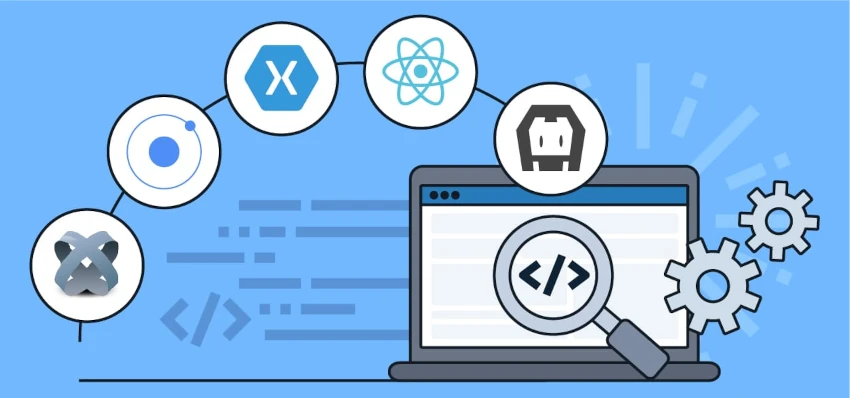
Multiplatform app development, also known as cross-platform app development, refers to the creation of software applications that can run on multiple operating systems, such as iOS and Android. This process allows developers to write code once and deploy it on various platforms, maximizing efficiency and reducing redundancy.
Process of Multiplatform App Development
In multiplatform app development, developers use frameworks like React Native, Flutter, or Xamarin to write a single codebase that runs on multiple platforms. These frameworks offer libraries and tools that abstract the differences between the operating systems, allowing the application to run seamlessly regardless of the platform. This approach differs from native app development, where separate codebases are maintained for each platform.
Advantages of Multiplatform App Development
Multiplatform app development brings several benefits. It can significantly reduce development costs and time since developers don’t need to write and maintain separate codebases for each platform. This approach also provides a uniform user experience across platforms, as the same code controls the application’s appearance and functionality.
Challenges in Multiplatform App Development
Despite its advantages, multiplatform app development presents certain challenges. Developers must keep abreast of updates across multiple platforms, and certain complex features may require platform-specific code. Performance can also be a concern, as cross-platform apps may not run as smoothly as their native counterparts. However, ongoing advancements in development frameworks continually improve the efficiency and performance of multiplatform apps.
- Cost-Effective: Reduces development and maintenance costs.
- Time-Saving: One codebase for multiple platforms.
- Consistent User Experience: Uniform look and feel across platforms.
- Broader Reach: Access to a larger user base.
- Faster Market Launch: Shorter development time speeds launch.
- Easy Updates: Simplifies application updates and bug fixes.
- Resource Optimization: Efficient use of development resources.
- Reusable Code: Code can be reused across projects.

José da Silva
Multiplatform App Developer
7+ Years of App Development 6+ Years of Multiplatform App. Has worked for both startups and larger corporates.

Antônio dos Santos
Multiplatform App Developer
10+ Years of Multi Platform 5+ Years of React Native. Has over a decade of professional Multi Platform development.

Carlos Pereira
Multiplatform App Engineer
8+ Years of Android App Development 5+ Years of Multiplatform App development. Great teamwork he previously worked in ecommerce.
What does a Multiplatform App Developer do?
A multiplatform developer designs, creates, and maintains software applications that function across multiple operating systems, like iOS, Android, and sometimes even web platforms.
They employ cross-platform development frameworks such as React Native, Flutter, or Xamarin to write a single codebase that runs seamlessly on all targeted platforms. Their role also includes understanding the project requirements, translating them into technical specifications, and building efficient and reusable code.
Multiplatform Developers tests to identify and fix bugs, ensure the app’s performance, and make necessary adjustments for different devices and operating system versions. A multiplatform developer also works collaboratively with UI/UX designers, project managers, and other stakeholders, integrating feedback to enhance the app’s functionality and user experience. Keeping up-to-date with the latest technologies and trends in the app development field is also an integral part of their job.
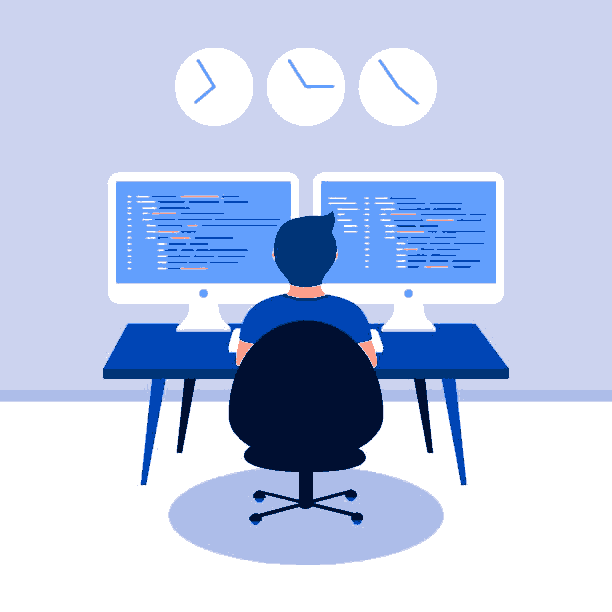
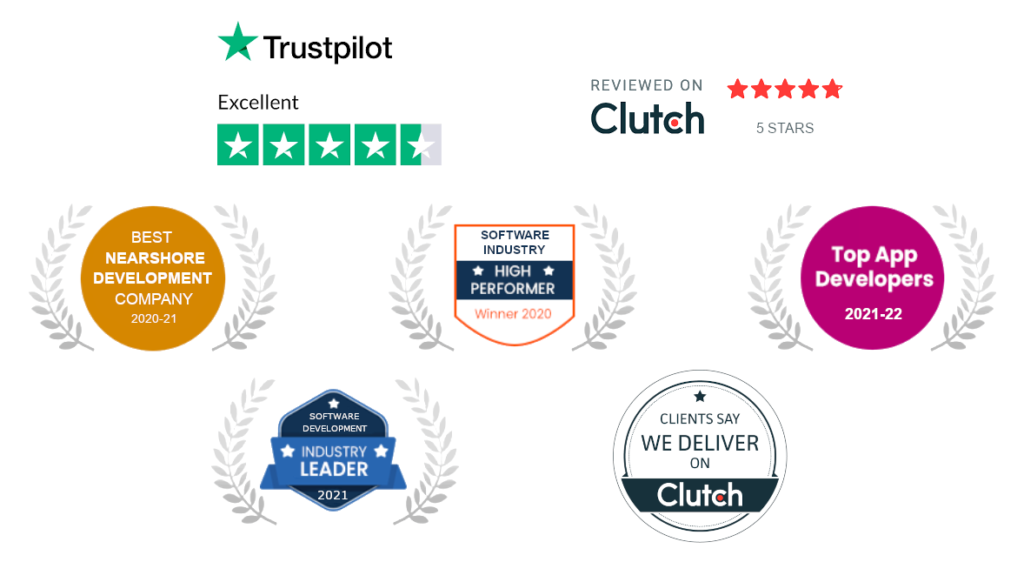
Proven Partners In Multiplatform App Development
When developing multiplatform apps, a highly reliable and experienced partner is essential. We pride ourselves on offering a premium and professional service to all our clients. To get your multiplatform development team started, contact us now!
How to Hire a Multiplatform App Developer?
Here are three steps you can follow to hire a Multiplatform App developer:
Send us your requirements by clicking on the box below. Make sure you describe the project and what you need in the description.
Interview Multi Platform App developers. Create a shortlist of professionals you’d like to interview as the proposals come in.
Your requirement description is the first step in defining your project scope and the type of Multiplatform App developer you need.
Include the following details for a fast response:
Describe the scope of the project: Include all the deliverables you will need, such as iOS App, Android App, and any APIs required.
If this is a smaller or larger project, you should indicate this in your job posting.
Experience in particular industries, such as finance, can be mentioned here if that is your preference.
The preference you have for hourly rates versus priced monthly contracts should be noted.
How much does it cost to Hire a Multiplatform App Developer?
Several factors influence cost, including expertise, experience, location, and market conditions.
Moreover, an experienced Multiplatform App developer will provide higher-quality results, work faster, and have a wider knowledge base.
Beginners might be able to price their Multiplatform App development services more competitively while they gain experience.
The hourly rate for our South American Multiplatform App developers is as follows:
Junior
Prices From- Works to U.S time zones
- No Recruitment Fees
- Vetted Skills & Experience
- Fulltime Working for you
- No Unreliable Freelancers
Intermediate
Prices From- Works to U.S time zones
- No Recruitment Fees
- Vetted Skills & Experience
- Fulltime Working for you
- No Unreliable Freelancers
Senior
Prices From- Works to U.S time zones
- No Recruitment Fees
- Vetted Skills & Experience
- Fulltime Working for you
- No Unreliable Freelancers
Recruit Multiplatform App Developers from South America with us!
You should note that the prices of developers are going to differ slightly based on the exact skill and experience requirements and their availability.
Choose the one that works best for your project depending on its specifics.
What does Multiplatform App code look like?
Multiplatform app code, specifically in React Native, looks similar to JavaScript because it is primarily written in JavaScript and JSX, a syntax extension for JavaScript that allows you to write HTML-like code within JavaScript code. React Native provides components that act as native counterparts, ensuring the application looks and behaves like a native app on any platform, such as Android or iOS.
Here is a simple example of a React Native application code that displays a “Hello, World!” message:
// Import the necessary modules from React Native
import React from 'react';
import { Text, View } from 'react-native';
// Define a functional component that will render our UI
const HelloWorldApp = () => {
return (
<View style={{ flex: 1, justifyContent: 'center', alignItems: 'center' }}>
<Text>Hello, World!</Text>
</View>
);
}
// Export the HelloWorldApp component
export default HelloWorldApp;
In this code, React and View are imported from the ‘react-native’ library. The HelloWorldApp function component returns a UI made up of a View with a child Text component. The style prop for View uses Flexbox to center the Text component, and the Text component displays “Hello, World!”. This code will run on both Android and iOS, showing the same output.
Interview Questions to ask before you hire a Multiplatform App developer
Can you describe a project where you implemented a complex feature in a multiplatform app?
This question aims to gauge the developer’s practical experience and problem-solving skills. A well-rounded answer would include details about the feature, the challenges faced during its implementation, the strategies used to overcome those challenges, and the eventual outcome. This information can provide insight into the candidate’s technical capabilities and approach to problem-solving.
How do you ensure optimal performance and consistency across platforms in a multiplatform app?
Different operating systems and devices might display the same code differently, potentially leading to performance issues and inconsistencies. The answer to this question can provide an understanding of the developer’s knowledge of these potential pitfalls and how they optimize and adapt their code to ensure a consistent user experience across platforms.

Can you discuss a time when you had to write platform-specific code in a cross-platform project?
While the goal of multiplatform app development is to use a single codebase, sometimes platform-specific code is needed to take advantage of certain native features. This question can reveal the developer’s proficiency in native development and their ability to combine it effectively with cross-platform development.

Do you prefer Working Alone or within a team?
The answer to this question can differ with individual Multi Platform software engineers having differing preferences. It may be important to you to hire an multiplatform developer who is hardworking and can work independently. As opposed to that, you might want someone who works well with others and does not seem stubborn.
What strategies do you use for testing in a cross-platform environment?
Thorough testing is essential in multiplatform app development to ensure that the application works flawlessly on all intended platforms. This question can show the developer’s understanding of effective testing methodologies, such as unit testing, integration testing, and UI testing, as well as their familiarity with relevant testing tools and automation practices.
Multiplatform App Development History
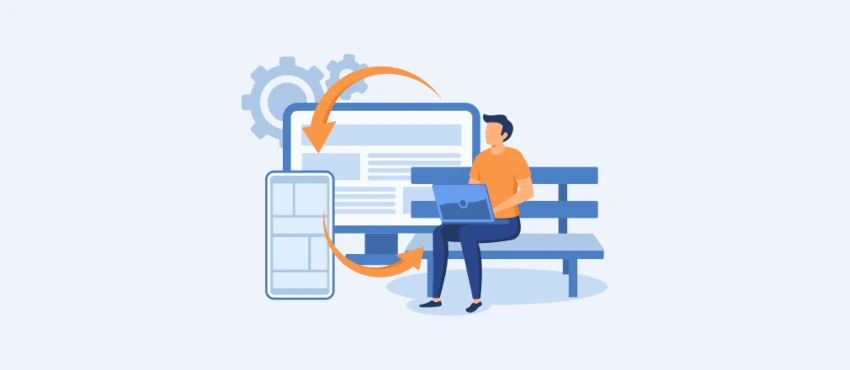
Multiplatform or cross-platform app development has emerged as a significant trend in the software industry, allowing developers to build mobile applications that can run on multiple operating systems, such as iOS and Android, using a single codebase. This development method has evolved over time to better address the growing need for efficient and cost-effective software production in an increasingly diverse mobile market.
The Dawn of Multiplatform App Development
The early years of mobile applications were characterized by platform-specific development, where separate apps were created for different operating systems. However, maintaining multiple codebases was resource-intensive. The advent of web-based technologies like HTML5 and CSS3 laid the foundation for multiplatform development, enabling developers to write code once and deploy it across various platforms.
Advancement in Cross-Platform Frameworks
The evolution of cross-platform frameworks marked a significant milestone in multiplatform app development. Technologies like Xamarin, React Native, and Flutter allowed developers to build apps that offer a near-native user experience across different platforms using a single codebase. This change increased efficiency, reduced development costs, and made maintaining and updating apps significantly easier.
The Future of Multiplatform App Development
The landscape of multiplatform app development continues to evolve, integrating new advancements like artificial intelligence, machine learning, and IoT. This constant evolution is making it possible to create apps that are not only platform-agnostic but also smart and connected. The focus is on improving user experience, performance, and scalability, suggesting a promising and innovative future for multiplatform app development.
Best Frameworks for Multiplatform Development?
Multiplatform or cross-platform frameworks are the backbone of multiplatform app development, enabling developers to write a single codebase that can be deployed across multiple operating systems, such as iOS and Android. Several such frameworks have become popular due to their efficiency, performance, and the near-native user experience they offer. Among these, Flutter, React Native, and Xamarin stand out as the most commonly used and acclaimed.
Flutter
Flutter, developed by Google, has been gaining popularity due to its highly efficient development capabilities. It uses the Dart programming language and provides a rich set of pre-designed widgets, allowing for highly customizable and aesthetically pleasing UIs. Flutter compiles to native code, which enables a high level of performance on both Android and iOS platforms.
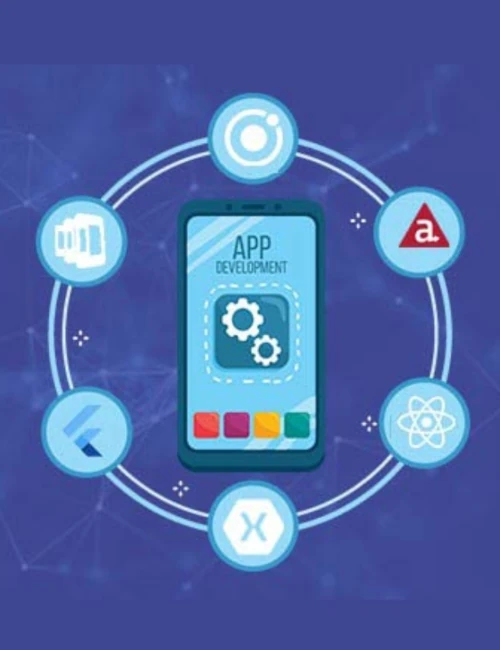
React Native
React Native, created by Facebook, uses JavaScript and allows for the development of multiplatform apps that offer a near-native user experience. It supports live and hot reloading, meaning that developers can see the result of changes to the code almost instantly, which significantly speeds up the development process. Its use of JavaScript, a popular and widely known language, is another point in its favor.
Xamarin
Xamarin, a Microsoft-owned framework, allows developers to write apps in C#, a language many developers are already familiar with, and run them on various platforms. It provides a single tech stack for seamless mobile app development, and its ability to reuse code and tools helps accelerate the development process. Furthermore, Xamarin offers robust tooling and native API access, making it a favored choice for many developers.
Why hire a Multiplatform App Developer with us?
With excellent prices, we provide high-quality Nearshore Multi-Platform App Development Solutions. Providing high-performance, scalable solutions is our goal.
Our multiplatform app development expertise and project management skills enable us to accelerate or rescue multi-platform App development projects. As your project develops, we strive to add lasting value.
Since 2014, we have matched hundreds of skilled developers to great teams at startups and tech companies around the world.
Multiplatform App developers hire from us will be fully integrated into your organization, becoming devoted members of your team.
Our Multiplatform App developers undergo a thorough vetting process to ensure they are capable of communicating, working remotely, and possessing technical skills (not only to check for depth in Multi-Platform App development and design but also to check for a breadth of software development knowledge).
More Economical Rates
Outsourcing helps companies reduce costs. There is a cost advantage to hiring multiplatform app engineers outside the United States. In addition, your overall employment costs will be significantly reduced. You will not be charged US or European employment taxes, benefits, redundancy liabilities, or office space fees.
Expand Faster
In any industry, expanding or downsizing quickly can be a great competitive advantage. With our Brazilian multi-platform app developers, your business will be able to grow and shrink as needed.
Benefit From Our Experience
By outsourcing app development, you’re partnering with a company that has many years of experience guiding businesses toward their multi-platform goals. By doing this, you can be sure that your application will be delivered on schedule and within budget.
What can you do with a Multiplatform App Developer?
A multiplatform app developer plays a crucial role in creating software applications that can run across different operating systems like Android, iOS, and sometimes even on web platforms. They use cross-platform frameworks such as React Native, Flutter, or Xamarin to write a single codebase that can be deployed seamlessly across all these platforms. This means they can help businesses reach a wider audience, as the applications they create can cater to users on various devices.
Besides coding, a multiplatform developer also tests the application across different devices and operating systems to ensure its performance and functionality remain consistent. Additionally, they work collaboratively with other stakeholders like UI/UX designers and product managers to improve the application based on user feedback. They also stay up-to-date with the latest advancements in cross-platform technologies, which can help keep the app modern and competitive.
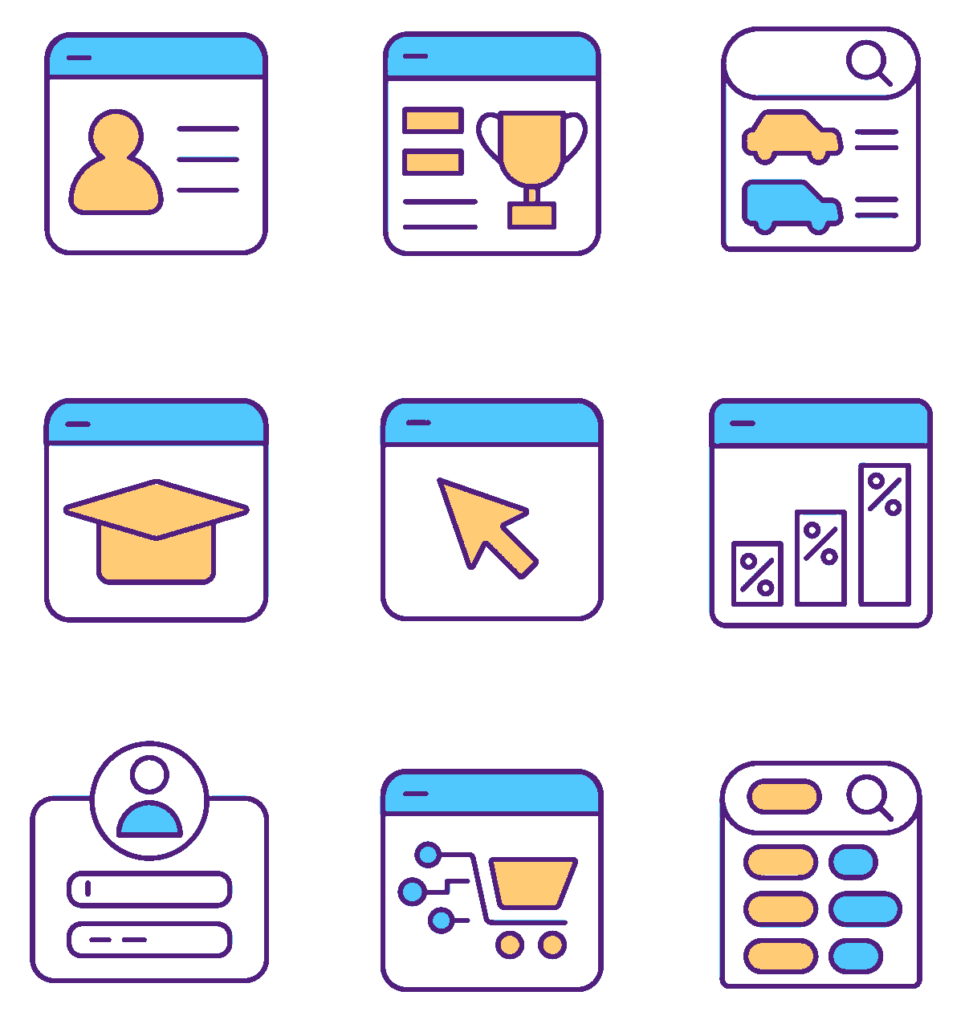
- Communication Apps: Facilitate team conversations and updates.
- Productivity Apps: Boost efficiency with task management.
- Project Management Apps: Organize and monitor project progress.
- Finance Apps: Handle business accounting and invoicing.
- CRM Apps: Manage customer relationships and sales.
- Collaboration Apps: Enable shared work on documents.
How do we code test a Multiplatform App Developer before hiring them?
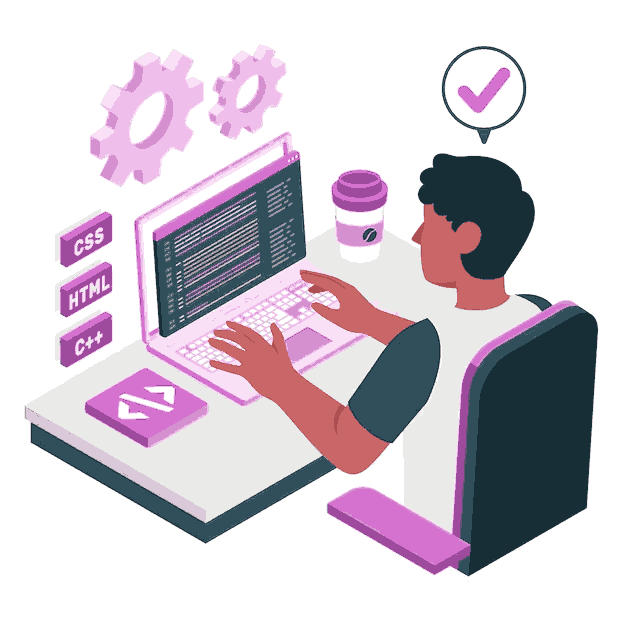
Evaluating the technical competency of a multiplatform app developer takes us several steps. An essential part of this process is the code test. This involves assigning a small project that closely resembles the actual work they’d be doing. This means we will ask them to develop a simple app using a cross-platform framework like Flutter or React Native.
During their design and coding, we observe how they handle different aspects such as UI/UX design, backend services, and data handling. We also take a close look at how they write code – its cleanliness, efficiency, and understanding of the problem.
Further, we challenge them to deal with platform-specific differences, like design norms or hardware access. We also note how they approach testing: unit tests, integration tests, or UI tests, as well-executed tests are crucial for any app’s stability. Their approach to these tasks can give us deep insights into their skills and capabilities.
How do you manage Multiplatform App Developers after you hire them?
Managing multiplatform app developers involves a combination of effective communication, strategic planning, and proper use of tools and methodologies. As these developers work with a variety of platforms and technologies, management should focus on nurturing an environment that promotes productivity, fosters creativity, and encourages continuous learning.
Clear Communication and Expectations
Ensure that roles, responsibilities, and expectations are clearly defined. Regular meetings can facilitate open communication, discuss project updates, and resolve potential issues.

Use of Agile Methodologies
Employ agile methodologies like Scrum or Kanban for project management. These practices can enhance collaboration, speed up the development process, and allow for flexibility in accommodating changes.
Continuous Learning and Training
Promote a culture of continuous learning. Encourage developers to upgrade their skills and stay updated with the latest trends and technologies in multiplatform app development.
Performance Evaluation and Feedback
Regularly assess the performance of the developers. Constructive feedback can help improve their skills, address issues, and align their work with business goals.
Effective Use of Tools
Utilize appropriate tools for project management, version control, and communication. Tools like Jira, GitHub, and Slack can help streamline the development process and enhance collaboration among team members.

How long does the average Multiplatform App Developer job last?
Depending on the company, Multiplatform App Developers in the US stay between 1.8 and 3.2 years in their jobs. In Brazil, people spend on average between 2.4 and 4.1 years, with those in Sao Paulo spending the least time. One company used to be the place where a person spent their entire career.
It is not uncommon for experienced Senior Multiplatform App developers to move from job to job fairly quickly, seeking new opportunities and more money. This market is looking for in demand Multi-platform app developers, so they can easily switch from one job to another. It is important to communicate with employees, and we provide perks to get and keep the best employees.

Frequently Asked Questions (FAQs)
Our services are trusted by hundreds of startups and tech companies worldwide, and we have matched hundreds of skilled multiplatform developers to great app development teams in the US, UK and Canada. Every Multiplatform App developer in our network goes through a vetting process to verify their communication abilities, remote work readiness, and technical skills, both for depth in Multi Platform app development and breadth of knowledge across the greater programming domain.
The job description of a Multiplatform App Developer should include the following:
Developing, implementing, and managing multiplatform apps
New app testing and evaluation
Enhancing existing apps by identifying areas for improvement
Coding in an efficient manner
Analyzing operational feasibility
Establishing procedures for quality assurance
Implementing software tools, processes, and metrics
Upgrades and maintenance of existing apps
Assisting other developers, UX designers, and business analysts with their tasks
It’s not enough to just ship features; your software needs to help your business succeed. In order to better understand what you’re building, for whom, and why, we’ll begin our collaboration with a discovery process.
Our headquarters are in Sao Paulo, Brazil. We have clients from all over the world. We have successfully collaborated with companies in North America, Asia, the Middle East, and Europe. A good understanding of each client and excellent English communication skills help the process run smoothly.
We can work with you to scale the team down as needed and make sure you have the correct skills required for each project phase.
All Types! You can hire a Multi Platform Developer on a full-time, part-time, or contract-to-hire basis at Hire Cross Platform Developer. You can find a Multiplatform App developer in a time zone that suits your needs thanks to our global network of skilled app engineers. Developers who work remotely for us are all mid- and senior-level professionals, ready to code right away.

